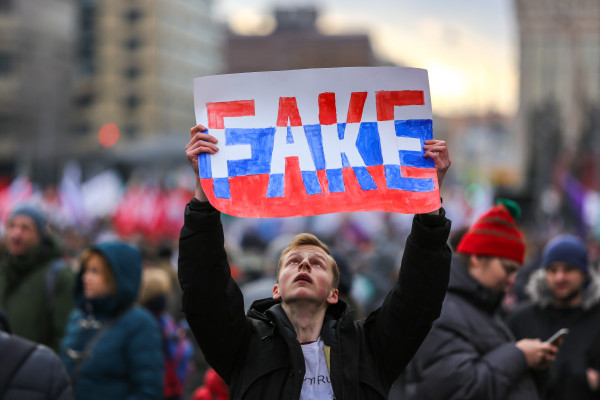
A increase in social media surveillance, warrantless queries of travelers’ gadgets at the border, and the ongoing distribute of disinformation are among the the good reasons why the U.S. has declined in online liberty rankings, according to a primary non-gain watchdog.
Despite the fact that Flexibility Property said that the U.S. enjoys some of the finest world wide web freedoms in the planet, its placement in the worldwide rankings declined for the 3rd calendar year in a row. Previous year’s one-position drop was blamed on the repeal of net neutrality.
Iceland and Estonia remained at the top rated of the charts, in accordance to the rankings, with China and Iran rating with the least free of charge internet.
The report explained that digital platforms, together with social media, have emerged as the “new battleground” for democracy, the place governments would customarily use censorship and web-site-blocking technologies. State and partisan actors have utilised disinformation and propaganda to distort information and views during elections in dozens of nations around the world about the earlier yr, such as the 2018 U.S. midterm elections and the 2019 European Parliament elections.
“Many governments are getting that on social media, propaganda functions better than censorship,” mentioned Mike Abramowitz, president of Liberty Household.

Independence House’s 2019 world-wide-web independence rankings. (Image: Independence Property)
Disinformation — or “fake news” as explained by some — has grow to be a major headache for both equally governments and personal marketplace. As the distribute of deliberately misleading and wrong facts has turn into a lot more commonplace, lawmakers have threatened to phase in to legislate towards the challenge.
But as some governments — together with the U.S. — have tried out to end the spread of disinformation, Liberty Dwelling accused some global leaders — which includes the U.S. — of “co-opting” social media platforms for their very own profit. Both of those the U.S. and China are amid the 40 nations that have expanded their checking of social media platforms, the report said.
“Law enforcement and immigration organizations expanded their surveillance of the general public, eschewing oversight, transparency, and accountability mechanisms that could possibly restrain their actions,” the report mentioned.
The encroachment on personalized privateness, these kinds of as the warrantless browsing of travelers’ phones without court docket-authorized warrants, also contributed to the U.S.’ decrease.
A number of tales in the previous calendar year unveiled how border authorities would deny entry to tourists for the articles of social media posts manufactured by other persons, following variations to policies that compelled visa holders to disclose their social media handles at the border.
“The upcoming of net freedom rests on our capacity to correct social media,” reported Adrian Shahbaz, the non-profit’s research director for engineering and democracy.
Offered that most social media platforms are based mostly in the U.S., Shahbaz said the U.S. has to be a “leader” in advertising and marketing transparency and accountability.
“This is the only way to stop the world wide web from becoming a Trojan horse for tyranny and oppression,” he said.







